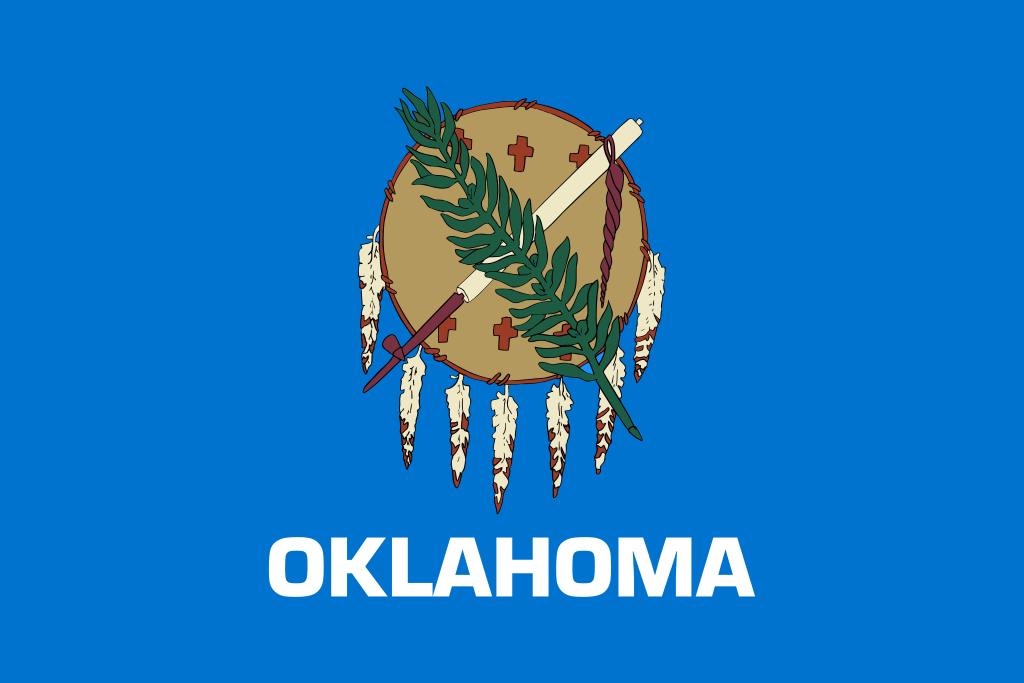The Oklahoma House of Representatives again advanced Senate Bill 1027 (SB 1027), a measure that would change the process of placing citizen-initiated amendments and laws on the ballot. SB 1027, which would take effect immediately after its passing, would make three changes to the initiative process in Oklahoma.
First, it would implement a distribution requirement for signatures supporting initiative petitions. Currently, Oklahoma is one of 10 states that have an initiative process without a distribution requirement. Under SB 1027, no more than 11.5% of the votes cast in the last gubernatorial election in each county could be counted towards a petition for a statute. For an initiated constitutional amendment, the limit would be 20.8% of votes cast in the gubernatorial election in each county.
Second, it would require that individuals who gather signatures are either Oklahoma residents or employed in Oklahoma. Additionally, no individual who is not an Oklahoma resident or employed in the state would be able to pay signature gatherers. Any signature gatherer who is paid would need to display a sign indicating who is paying them.
Third, each sheet used to gather signatures must include a summary of the initiative, which is written in basic, common words and does not contain “euphemisms, words, or phrases regarded in popular parlance as code words, or an apparent attempt to deceive voters.” The summary would also be required to indicate whether the initiative will have a fiscal impact and from where potential funding would come. It would need to notify potential signers that their signature would become public record. The secretary of state would be tasked with affirming that the summaries of initiatives comply with SB 1027.
State Sen. Lonnie Paxton (R-23) introduced SB 1027 on Feb. 3, 2025. The Senate Judiciary Committee reported a "Do Pass" recommendation on March 4, 2025. On March 18, 2025, the state Senate passed SB 1027 with a vote of 36-8. Thirty-six Republicans voted yes and eight Democrats voted no, with three Republicans absent from voting. The House Government Oversight Committee amended SB 1027 and reported a "Do Pass" recommendation on April 16, 2025. On May 7, 2025, the state House passed SB 1027 with a vote of 70-21. Seventy Republicans voted yes, and four Republicans and 17 Democrats voted no, with six Republicans and one Democrat absent from voting.
Generally, a bill in the Oklahoma State Legislature needs only to be approved by the House and Senate once. However, the House Government Oversight Committee amended SB 1027. Amendments to the bill included changing the specifics of the distribution requirements and tasking the secretary of state with affirming the summaries of initiatives. Because SB 1027 was amended after the Senate approved it, they must again approve the bill before it can be signed into law by the governor. The amended bill was read for the first time in the Senate on May 8, 2025.
State Rep. Kyle Hilbert (R-29) argued that the bill would let voters know more about what decision they are making. He said, “This is an important transparency measure. People should know, when they’re signing an initiative petition, the fiscal impact. When people go to vote, people should know the fiscal impact of what they’re voting on, because at the end of the day it’s easy to sell a bill of goods to people and say, ‘Hey, we’re going to supply X, Y and Z service,’ and not tell them that their taxes are going to go up or that other core services are going to get cut.”
State Rep. Mickey Dollens (D-93) argued that the bill would silence the voice of the people, saying “...this has nothing to do about getting more rural votes or signatures. This is simply about silencing the people’s constitutional right to petition their government. And it should be noted that signatures make no effect on the outcome of a state question on the ballot. All that does is simply gain and question access to the ballot, and then everyone has the opportunity to vote for it in a general election, just like we do statewide elected officials.”
From 2010 to 2024, Oklahoma citizens filed 70 initiatives. Nine of those initiatives were certified and placed on the ballot for voters. Four (44.4%) were approved, and five (55.5%) were defeated by voters.
One initiative has been certified for the ballot in Oklahoma for June 16, 2026. State Question 832 would gradually increase the state minimum wage to $15 per hour by 2029.
Two other initiatives have been filed for the ballot in 2026. State Question 836 would establish in the constitution an open primary system for statewide and county offices. Under this system, candidates for an office would appear on one ballot, regardless of their political party, and the two candidates with the most votes would move forward to the election. On April 9, 2025, the Oklahoma Republican Party challenged the initiative in the state Supreme Court, claiming the initiative is unconstitutional. The initiative is on hold, and supporters will not be cleared to gather signatures until the court issues a decision on the case.
State Question 837 would create a constitutional right for people aged 21 and older to purchase, possess, and consume marijuana in any form. The initiative addresses the right of individuals to grow marijuana privately and would create a 10% tax on all marijuana sales in the state. It would mandate a right to privacy in marijuana use, such that individuals could not be denied housing or employment due to their marijuana use. Proponents of the bill are currently gathering signatures in support of the initiative.
See also:



